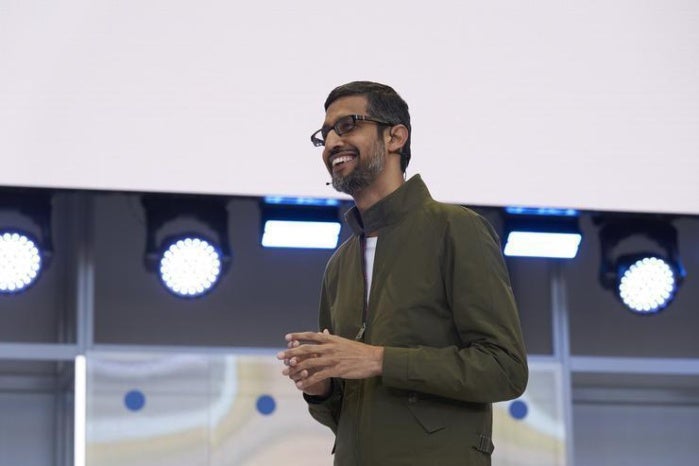As the defense phase of the US government’s antitrust case against Google gets into full swing, the search giant brought out its biggest star, CEO Sundar Pichai, to back up the company’s arguments and defend Google’s business practices and market share in the search business.
The US has argued that Google has cornered the search market through default search engine contracts with phone, hardware, and platform providers, thereby boosting its market share to a level that prevents rivals from competing. Google says its success comes not through default search contracts but from its ongoing efforts to innovate a product that users consistently prefer over rival search options.
Although Pichai, who joined the company as a product manager in 2004, portrayed Google as an innovator, producing, among other things, a state-of-the-art browser in Chrome (the development of which Pichai oversaw), some of his testimony appeared to reinforce the government’s contentions. Pichai revealed new details about its default search contract with Apple and underscored that gaining default search status via contracts is a significant driver of the company’s commanding market share.
Integration with Chrome was a significant driver of search
Under questioning Monday by Google’s defense counsel, John Schmidtlein, Pichai recounted the early development of Chrome and how Google began to realize how important the browser could be to the search market. “It became very clear early on the better you make the user’s web experience, they would use the web more, they enjoyed using the web more, and they would search more in Google as well,” he said.
One key to the success of Chrome, which uses Google as its default browser, was the combined URL and search box that enabled users to type anything and navigate to websites responsive to their queries. “That seamless integration, people really enjoyed it, people valued it, and people used the web more and searched more,” Pichai said in response to Judge Amit Mehta’s question about how Chrome boosted search activity.
Google worried about Apple using third-parties
Pichai also delved into his negotiations with Eddy Cue, Apple’s senior vice president of services, that led to the 2016 renewal of the internet services agreement (ISA) between the two companies under which Google has paid billions for default search engine status on iOS devices. During those negotiations, Cue sought a greater share of the revenue that Google generated from Apple users, particularly given that Apple believed Google’s search revenue from its users were rising more rapidly than Apple’s share. Google did not agree to increase Apple’s share, Pichai said.
Cue was also interested in getting its ISA extended as long as possible. Pichai resisted the idea but ultimately compromised. “The longer the timeframe, there can be uncertainties. But we eventually ended up doing it in a way in which Apple has the right to extend the deal to a longer…
2023-11-02 10:41:03
Original from www.computerworld.com rnrn
